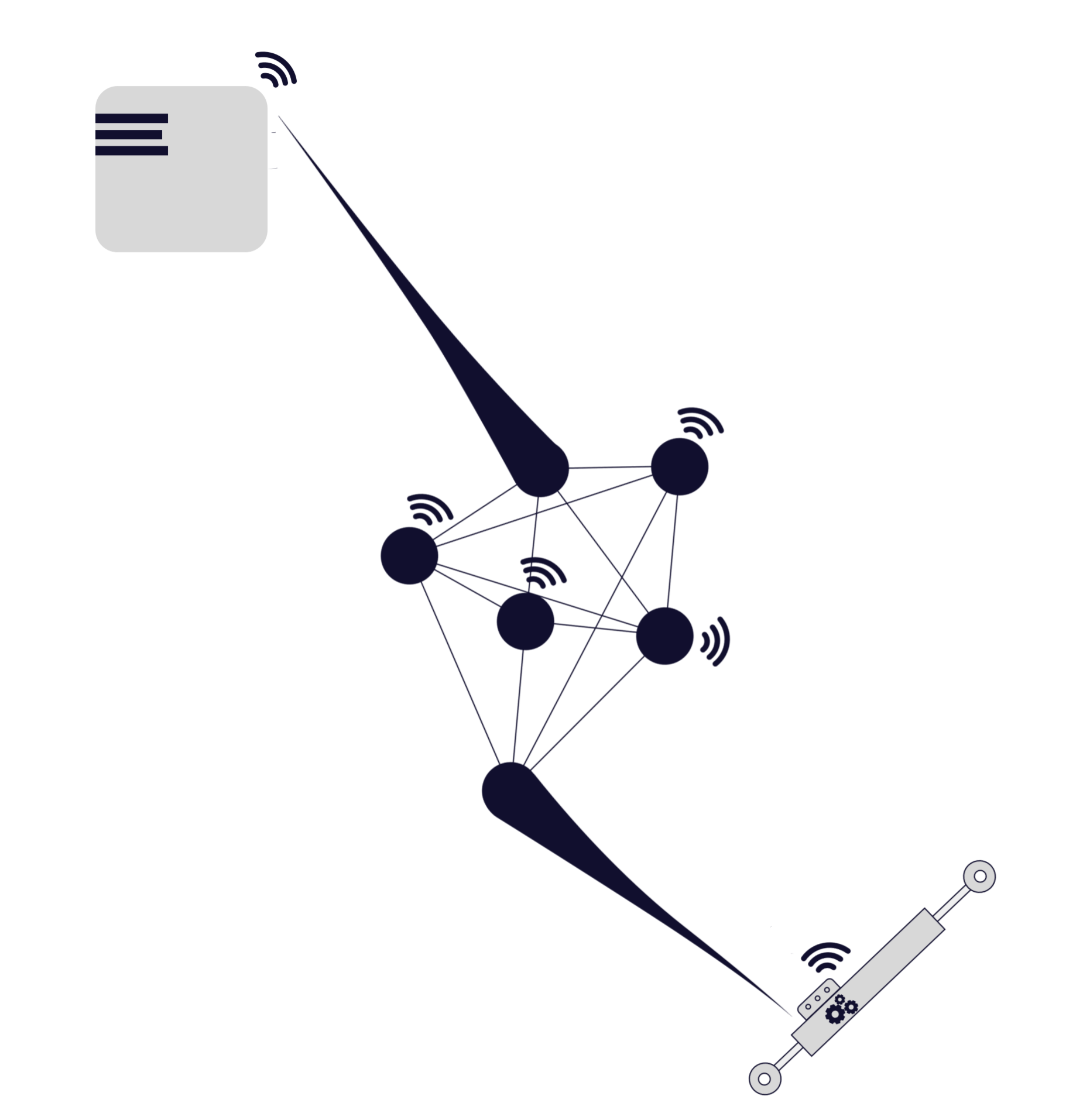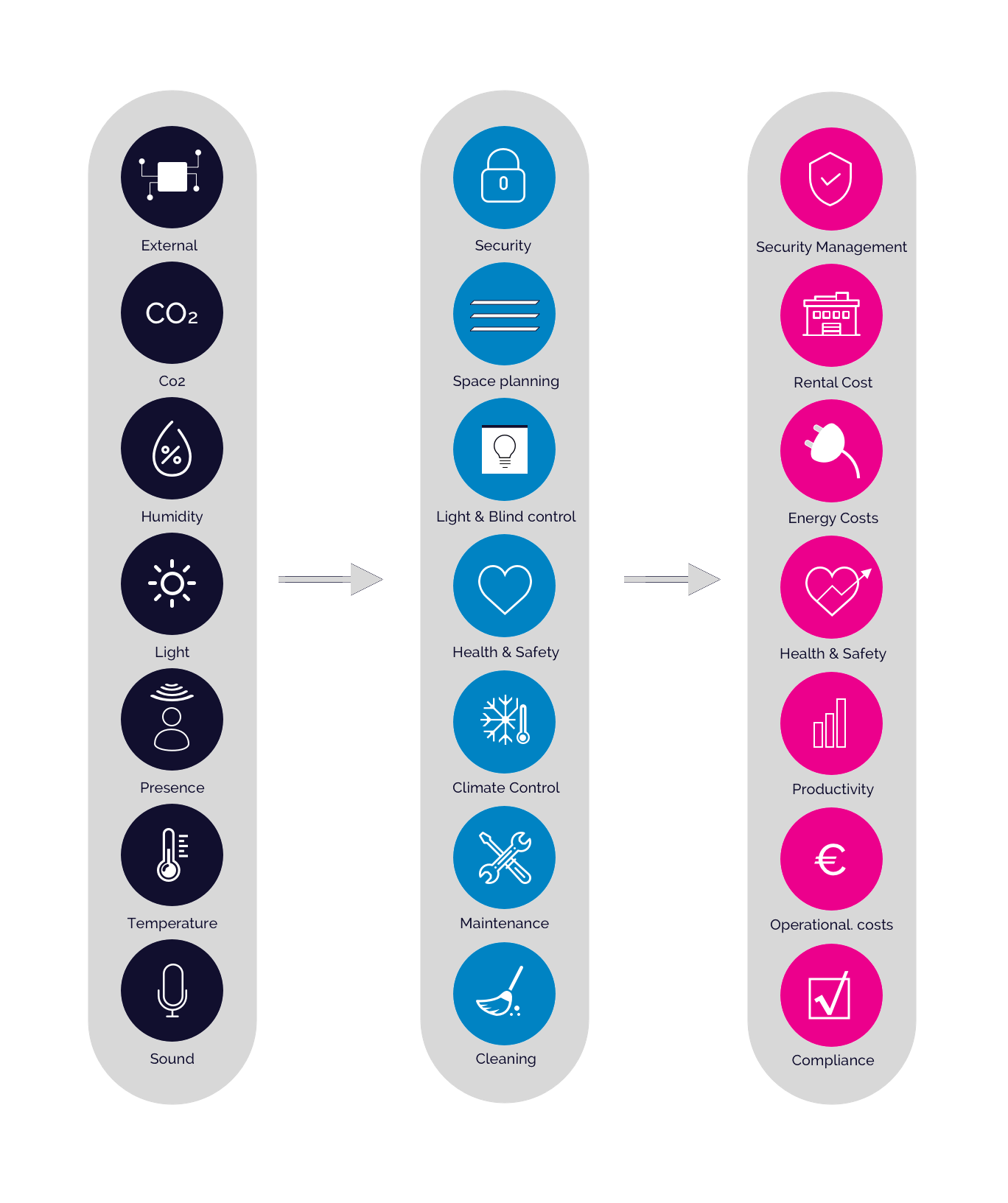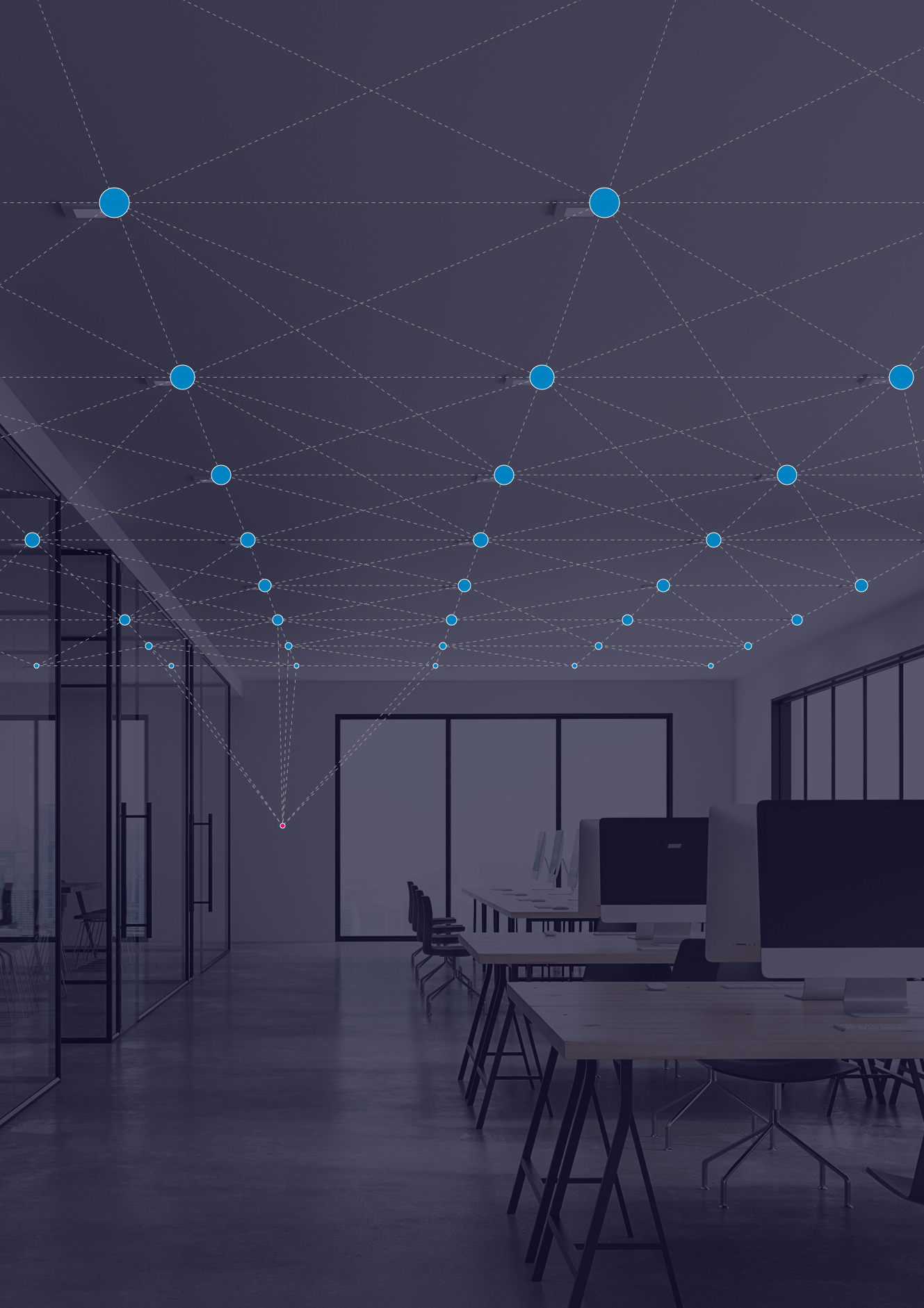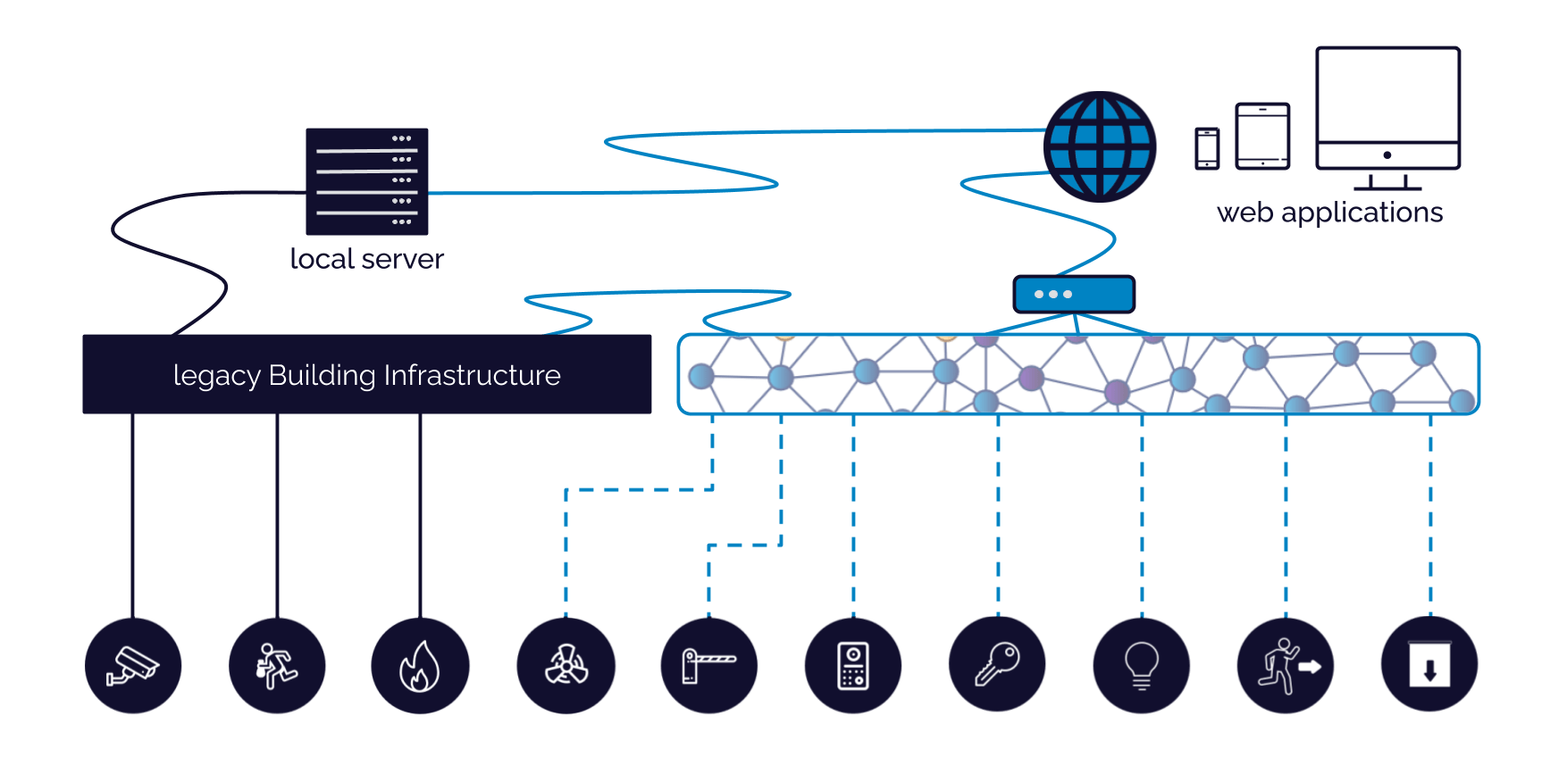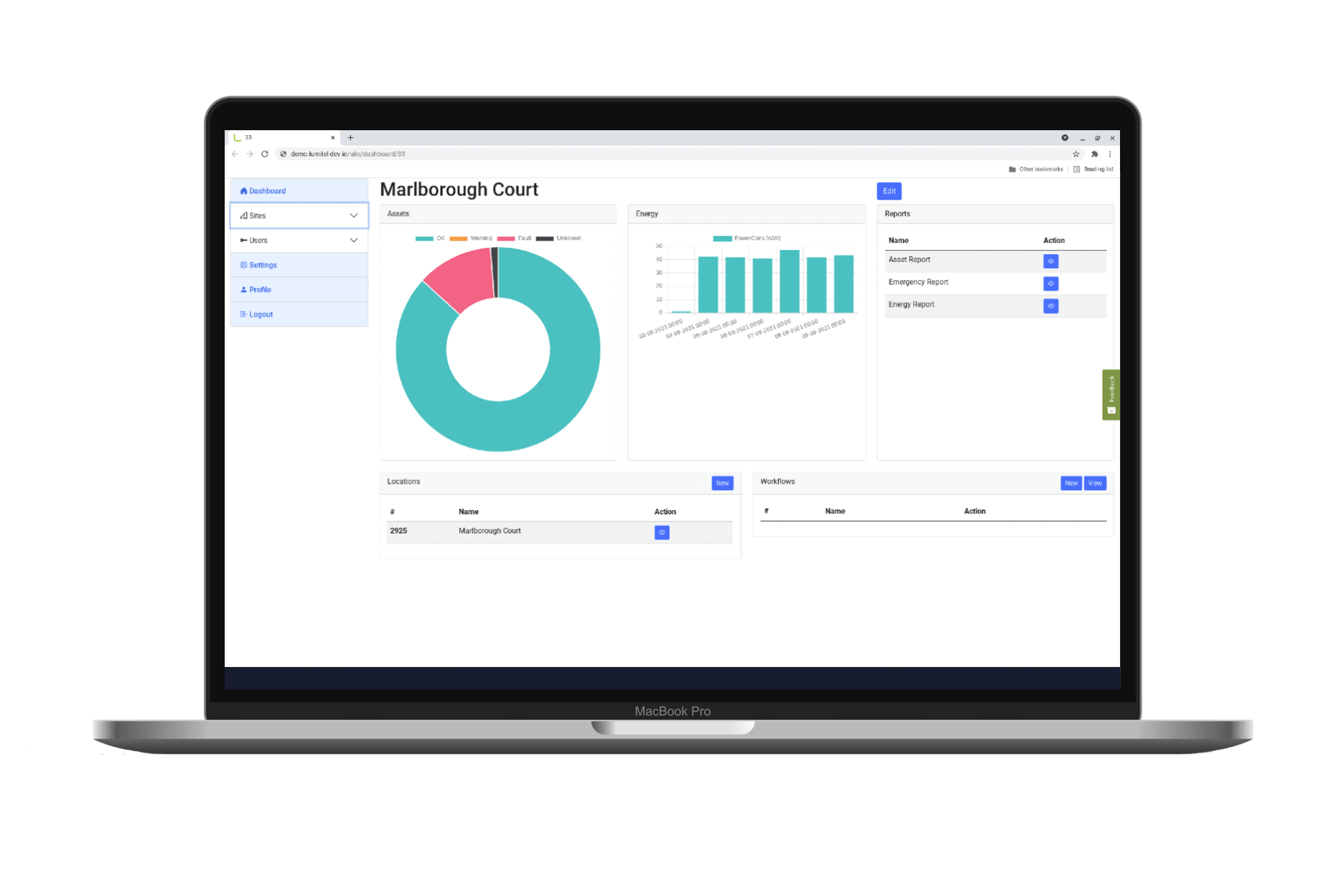Smart
building
design
Smart technology for the professional environment
Our model brings all aspects together
DOWNLOAD OUR BROCHUREBusiness intelligence
A Smart Building combines the conventional building automation systems with advanced business intelligence. An advanced infrastructure automatically controls the systems in the building based on the collected data, while using it for optimising the processes in line with the business’ functions and services. The objectives can be operational, like reducing cost, improving efficiency, but it really becomes significant if they are strategic, like enabling new business models or improving customer experience.
Business intelligence combines all collected data via machine learning algorithms to create valuable information about business processes. More and a wider variety of sensors increases the sensor density, and enables a more accurate analysis.
A building filled with sensors will generate a lot of data. However, collected data is something different than information. Advanced software solutions and smart dashboards help owners, operators and facility managers to generate this information to improve asset reliability and performance, reduce energy use and optimise how space is used and minimises the environmental impact of buildings.
Ready for the future
The basics of Internet of Things
The acronym IoT stands for ‘Internet of Things’. It means that all devices are connected to the internet. Devices are divided in Sensors and Actuators.
Smart Building Design Model ©
A Smart Building is a sustainable development with the aim to use energy efficiently, to improve the wellbeing and productivity of employees and to reduce operational cost..
It is essential to gain insight in the processes in a Smart Building Therefore, Chess developed a model with the user as the centre point. The model enables us to correlate different layers of information and to detect the level of interaction. .
Sensor data is used to determine the effect of building automation systems on the business processes and the effect on the business results.
The sensors on the left measure the environment variables that influence the health, wellbeing and productivity of the user.
The activities in the middle are the technical systems and business processes. The sensor data is used for building automation and management applications in order to improve the operation of the building.
These activities allow us to control the system to improve the wellbeing and productivity of the user, reduce the operational cost, improve the security and reduce the energy cost. It enables us to quantify the sustainability of the building.
This results in the KPI’s (Key Performance Indicators) on the right. KPI’s make the Smart Building performance visible.
Possibilities
Road blocks
Mymesh, a unique infrastructure
The potential of the wireless technology of Mymesh has evolved from the experience of decennia of development for multinationals and government departments. Chess decided in 2003 to develop together with the international scientific community, a network protocol to wirelessly connect thousands of devices.
The specific target application of the protocol was large professional environments. Therefore, security and scalability were paramount. To achieve this, a practice was adopted to learn from nature and mimic its strategies to solve human design challenges: Bio-mimicry.
Like with a large flock of birds or a school of fish, where thousands of ‘members’ rally, the protocol swiftly spreads signals throughout the network, no matter how large. The analogy is striking.
Distribution of the network
To ensure the system is able to manage systems throughout the Smart Building, you need an infrastructure that reaches every corner. The answer is lighting. Where there are people, there is lighting, and that makes it ideal to create a large, scalable and fine-mazed network to distribute data.
‘Entirely local, scalable and ultra-secure’
Data infrastructure
How to manage it
Single-Pane-of-Glass Dashboard
The Lumitel Dashboard is a Cloud based application to remotely manage, monitor and control the Mymesh network. Furthermore, it is able to integrate with third-party Building Management Applications to create one platform with a wide range of Building Automation Systems.
Lumitel can be customised to individual requirements. Building Automation Systems like energy analytics, occupancy monitoring and climate control can be integrated next to the wireless applications for lighting, emergency light and blinds.
It is possible to directly integrate third party systems . This makes it possible to integrate all sensors, actuators and systems into one platform and manage it as one system. The possibilities are unlimited.


